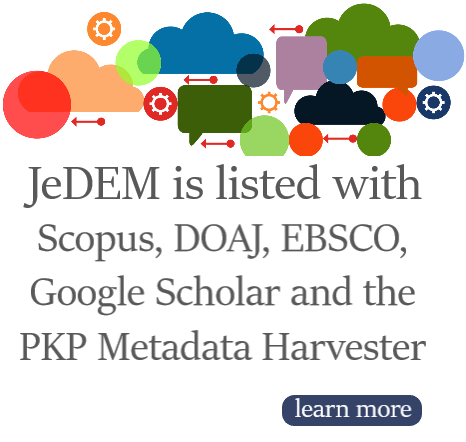About the Journal
The eJournal of eDemocracy and Open Government (JeDEM) is and Open Access e-journal offering a rigorous double-blind peer-review. Submitting to and publishing in JeDEM is free of charge (no processing charges or APCs).
We publish theoretical, practical and empirical research in the categories Research Papers, Invited Papers, Project Descriptions and Reflections. Authors can submit to JeDEM as response to a special issue call for papers or as an ongoing submission.
Read more here.













